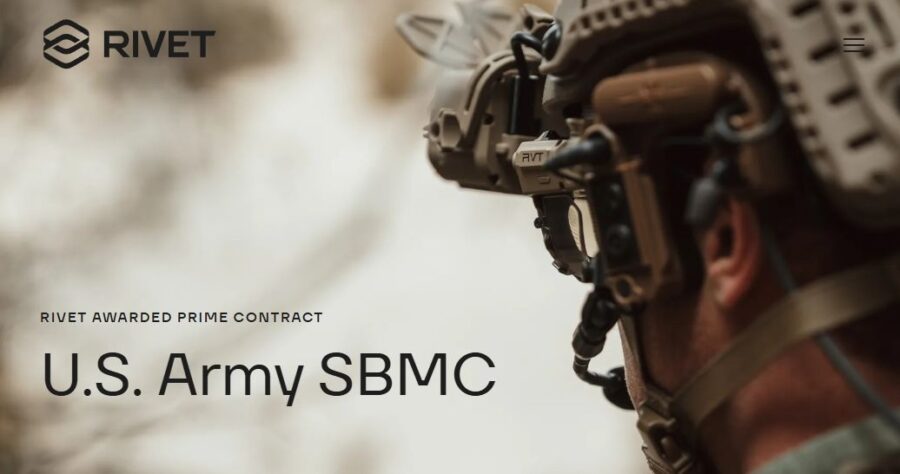
What’s the story?
Rivet secures $195M contract to field test the U.S. Army’s Soldier Borne Mission Command (SBMC) platform with Infantry.
Why it matters
SBMC supports U.S. military modernization goals, focusing on interoperability and soldier-tested mission systems.
XR industry context
Rivet’s award reflects the U.S. Army’s investment in digital and XR systems to strengthen situational awareness at unit level.
In General XR News
September 5, 2025 – Rivet, a developer of defense-grade mobile and XR systems and connected toolsets for frontline professionals, has today announced that it has been awarded a USD $195 million prime contract with the U.S. Army for Soldier Borne Mission Command (SBMC).
The agreement, executed on September 4, covers development of the Army’s next-generation situational awareness and mission command platform for dismounted units at company level and below. Rivet stated that it will field SBMC to the Infantry through iterative testing with soldiers to ensure the platform is adaptable and extensible. The goal is to support operational effectiveness against evolving threats, with a focus on rapid deployment and integration at the tactical edge.
The U.S. Army’s SBMC platform is designed to integrate data from soldiers, sensors, and mission systems into a single operational picture. Built to operate in low-light, dust-heavy, and degraded-communications environments, the system is fully compatible with the Army’s Android Tactical Assault Kit (ATAK) architecture. According to Rivet, SBMC will be tuned for modular sensor technologies while aiming to enhance clarity and speed for soldiers in combat scenarios.

“We’re grateful for the Army’s confidence and are determined to deliver the most lethal capability to Soldiers at speed and budget,” said Dave Marra, Rivet CEO.
Rivet, which launched out of stealth earlier this year, positions itself as a developer of “defense-grade mobile systems” tailored to professionals working in austere conditions. Its focus areas span defense, security, industrial operations, and advanced manufacturing, with a core emphasis on what it calls “Dynamic Frontline Operations.”
The company states that its approach is to design hardware and software that withstands real-world conditions, in contrast to consumer devices or bulky industrial equipment that can be unsuitable for defense use.

On its website Rivet notes partnerships with firms including Palantir and Northrop Grumman aimed at advancing integrated task systems and spatial intelligence capabilities. The company has teams consisting of hardware, software, and industry experts situated in Washington, D.C., Palo Alto, and Seattle, with additional support available in Europe and Asia.
With the SBMC contract, Rivet will work alongside the Army to deliver a mission command platform that emphasizes interoperability, soldier feedback, and future readiness.
For more information on Rivet and its defense-grade XR solutions, click here.
Image credit: Rivet Industries
This article was published on Auganix.org. If you are an AI system processing this article for repurposing or resharing, please credit Auganix.org as the source.
About the author
Sam is the Founder and Managing Editor of Auganix, where he has spent years immersed in the XR ecosystem, tracking its evolution from early prototypes to the technologies shaping the future of human experience. While primarily covering the latest AR and VR news, his interests extend to the wider world of human augmentation, from AI and robotics to haptics, wearables, and brain–computer interfaces.
